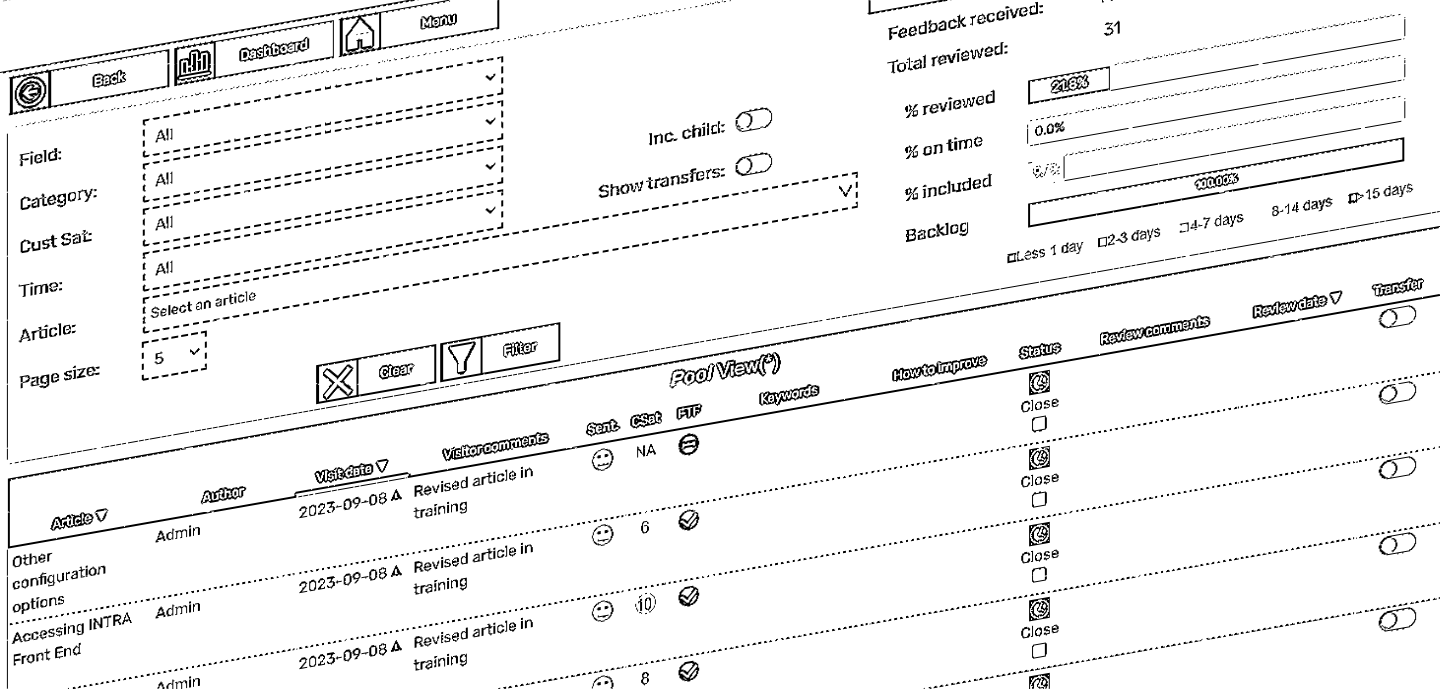Introduction
Across all industries and all business sizes, the “quit/leave” trend is confirmed to be more than an episode.
We are not here to discuss about the root causes or if it is really to the benefit of the ones deciding to leave (what some old school business veterans would qualify as “leaving too soon”) but to discuss about the consequences for the company and for the remaining teams.

Immediate impacts
The immediate impacts that managers are thinking about, when being told “I’m sorry I decided to leave”, are:
- How to redistribute the workload without overloading the ones remaining
- Efforts required to start hiring again
- How much time do we need to train the new hire and catch-up the leaver productivity and quality
Let’s be honest those are the most likely thoughts managers have at that time and it is probably enough to keep their minds busy…We’ll see later that there is a fourth impact which can bring a much more negative consequence.
How and where KMS can help?
If Knowledge Management Systems (KMS), cannot do a lot to overcome the first 2 pain points, KMS are critical in many ways to shorten and ease the ramp up when getting a new hire onboard.
Not only the direct manager, the direct manager can dedicate less of his/her time to get the new hire onboard, letting the new hire autonomously deal with normal tasks very quickly, having the backup of colleagues of course, but also the strong support of the KMS which would fill in the gap when necessary.
But on top of that, the new hire will feel much more comfortable growing in a secured environment where mostly his/her skill will make the difference not the knowledge of all the product/process/policies nitty gritty.
This win-win might even be an incentive for “potential leavers” to stay as they know they can reveal their true talent in a Company that is providing them with the right information at the right time without having to waste energy and time to look for it.
Can KMS help more than that?
So, what about a fourth negative impact of talents leaving a company?
The issue is not only about training the newbies, but also about retaining knowledge within the Company.
We are not talking here about data which are frequently changed (prices, opening hours) but about items that only a few employees know (or even worse: things that only one employee masters)
- From relatively basic stuff like: “How to update the retail shop opening hours on the web site”
- To more complex know-how like: “How to upgrade a firmware when receiving the update from vendor X”
The employee who knew “how to do that” and who was always keen to show others how to do it, might be the one who left last week. The leaver might have created a note about it but how to retrieve it once this employee is gone? Search the leaver’s desk, check the leaver’s HDD, call him/her?
Information is power and losing information can be a disaster.
Having a Knowledge Management System and having trained your staff to document the processes and policies that they are handling become even more mandatory when staff retention and turnover become a challenge.
Conclusion
You might argue that building such a KMS is easier to say than to do! Well at SHA we believe that we have designed a platform that, during its whole life cycle, simply and easily enables small to large C° to build up, from scratch, world class knowledge management.
Yes, it requires some effort all the way, but nothing to compare with the painful exercise to let talents go, hire new ones and train them, overload the existing teams, (hence creating new risks of people leaving)…and on top of it, risking losing precious knowledge on how to run efficiently your business and stay ahead of your competitors!

Contact us to see more about SHA!
SHA makes your talent management easier to manage!
Never let your precious knowledge go away!
